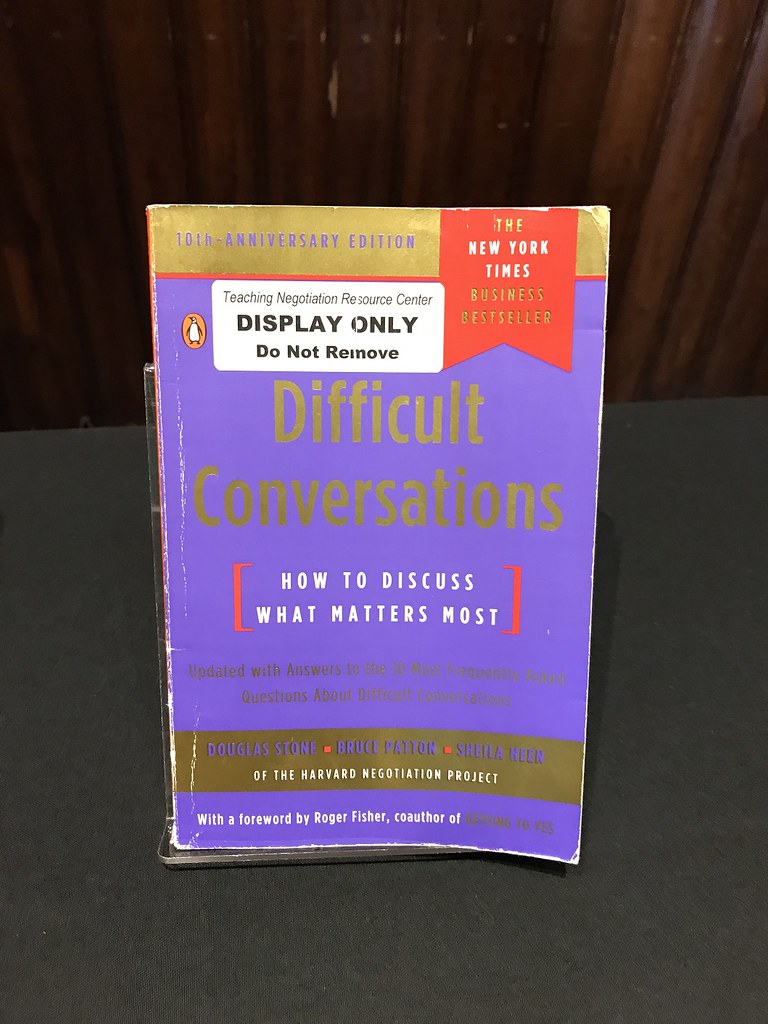I was blown away by the credentials of Prof. Bruce Patton. I hope it’s okay to post some information about him.
He received his A.B. from Harvard College in 1978 and his J.D. from Harvard Law School in 1984. He is a Distinguished Fellow of the Harvard Negotiation Project which he co-founded with Roger Fisher and William Ury in 1979 and administered as Deputy Director until 2009. With Fisher, Prof. Patton pioneered the teaching of negotiation at Harvard Law School, where he was Thaddeus R. Beal Lecturer on Law for 15 years. He continues to teach the Basic and Advanced Negotiation Workshop at Harvard.
He has extensive experience in corporate, labor-management, and international contexts, including training the White Afrikaner Cabinet and African National Congress Negotiating Committee in South Africa before the constitutional talks that ended apartheid, mediating at the behest of the U.S. and Iran in the 1980 hostage conflict, working with President Oscar Arias on the Esquipulas II Central American peace agreement, and enabling the Boston Public Schools and the Boston Teachers Union to negotiate several contracts for educational reform.
Prof. Patton is the co-author with Roger Fisher and William Ury of “Getting to Yes” which has sold more than 8 million copies to date, in print in 36 languages. His book, “Difficult Conversations: How To Discuss What Matters Most”, with Sheila Heen and Douglas Stone, is a New York Times business bestseller that has been translated into almost as many languages.
Our subject was Managing the Tension Between Creating and Distributing Value.
I thoroughly enjoyed the long hours I spent listening to Prof. Bruce Patton. Although there were moments of sleepiness, I managed to keep myself awake and alert to absorb every single word he said.
He gave us an arm exercise. Susan, the chief prosecutor seated to my right was my partner or opponent. Since I broke my right arm, I told her I would use my left arm. I positioned my left arm with my elbow touching the table. Susan and I wrestled. Surprisingly, I was stronger than she was. She couldn’t even move my arm.
Prof. Patton asked the class how many times we touched the table.
Only then did we realize that the arm exercise didn’t necessarily mean arm wrestling. I raised my hand to recite. I explained that when he said arm exercise, my assumption was that it would be a competition, a fight. Of course, I didn’t want to lose so I stood my ground and won both wrestles. To my delight, Prof. Patton said I was very good. He told the class “I didn’t pay her to say that”.
Some lessons I picked-up from his lecture:
IT’S HARD TO DO ANYTHING IF YOU ARE NOT SURE OF WHAT YOUR GOALS ARE.
DO SOME CAREFUL REFLECTION TO THINK OF YOUR PRIORITIES.
THERE’S A BIG GAP BETWEEN KNOWING WHAT YOU WANT TO DO AND BEING ABLE TO DO IT.




